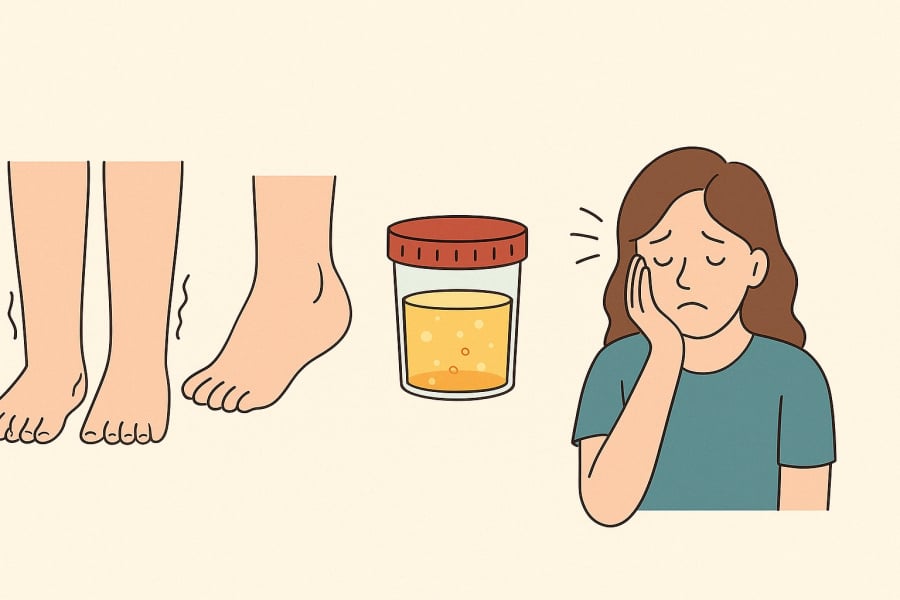A Troubling Trend: Rising Dialysis Cases Among the Youth
In recent years, Vietnam has been facing an alarming trend: an increasing number of young people under 40 are being diagnosed with end-stage renal disease. According to the Vietnam Nephrology Association, this rate has risen by almost 30% in just five years. This trend is not unique to Vietnam, as it has been observed in other countries worldwide. Experts predict that without timely intervention, these numbers will continue to climb.
The main culprit behind this worrying trend lies in the lifestyle changes among today’s youth. Unhealthy eating habits, sedentary lifestyles, and work-related stress are taking a toll on renal function. A study published in the Health & Life newspaper in 2023 revealed that the rate of young people suffering from chronic kidney disease in large cities such as Hanoi and Ho Chi Minh City is rapidly increasing due to polluted living environments and unscientific lifestyle habits.
“Many young patients come to the hospital at a late stage because they think kidney disease only affects the elderly,” shared Dr. Nguyen Thi Mai Anh, a nephrologist at Bach Mai Hospital. “This makes treatment much more difficult and expensive.” This serves as a wake-up call to all of us about the importance of raising awareness of renal health, especially among the youth.

Early Warning Signs of Kidney Disease in Young Adults
To avoid unfortunate situations, it is crucial to recognize the early signs of kidney problems. First, pay attention to any changes in urination habits. If you find yourself urinating more frequently, especially at night, or if your urine appears foamy, cloudy, or reddish-brown, it could be the first indication of kidney issues. Additionally, abnormal urine output, either too little or too much, is also worth noting.
Another noticeable sign is edema, or swelling. If you experience swelling in your ankles, feet, face, or around your eyes, it may indicate that your body is retaining fluid due to impaired kidney function. Moreover, prolonged fatigue, difficulty concentrating, and reduced productivity, even without strenuous activity, should also raise concern.
Other possible symptoms include changes in taste, loss of appetite, nausea, and ammonia breath. Persistent itching without an apparent cause may also indicate toxin buildup in the blood due to impaired kidney filtration. Lastly, pay attention to back or hip pain, high blood pressure, and shortness of breath during exertion.

Risk Factors for Kidney Disease in Young People
Not everyone is equally susceptible to kidney disease, but certain factors can increase the risk. A family history of kidney problems is a significant consideration. Additionally, underlying conditions such as diabetes, hypertension, and glomerulonephritis accelerate the decline in renal function.
Unhealthy dietary habits, including excessive salt intake, consumption of processed foods, and the misuse of painkillers and antibiotics, also play a role. Dehydration and frequent urination inhibition put extra strain on the kidneys. Obesity, physical inactivity, smoking, and substance abuse are further risk factors that cannot be overlooked.
Preventive Measures for Kidney Health in Young Adults
To safeguard renal health, individuals must take proactive steps. Firstly, adopting a healthy lifestyle is paramount. This includes maintaining a balanced diet, reducing salt, sugar, and saturated fat intake, and staying hydrated with 2-2.5 liters of water daily. Regular exercise, at least 30 minutes a day, also contributes to overall health.
For those with diabetes or hypertension, diligent treatment and regular monitoring are crucial to prevent kidney complications. Avoid self-medicating with painkillers or antibiotics without medical advice. Periodic health check-ups, especially kidney function tests, enable early detection of potential issues.
Lastly, kick bad habits like smoking, alcohol consumption, and substance abuse. These small actions can have a significant impact on renal health.
Conclusion
Kidney failure is no longer solely a concern for the elderly; it is an emerging threat to young people as well. What may seem like minor symptoms could be serious warnings about kidney health. Therefore, don’t ignore unusual bodily signals. Listen to your body, adopt a healthy lifestyle, and schedule regular medical check-ups to safeguard your well-being.
“Health is our most precious asset. Take action today to protect it,” is the message I want to convey to everyone. After all, only when we are healthy can we truly live a fulfilling life.






























